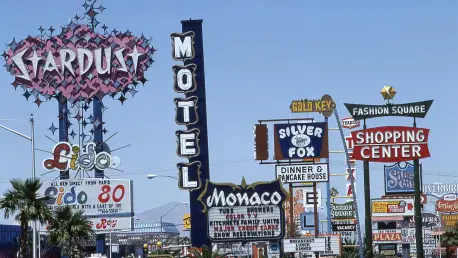In recent years, the intersection of pop culture and the hospitality industry has become increasingly significant. Hotels have begun to recognize the potential of leveraging popular media to enhance their brand visibility and engagement, driving substantial increases in bookings. This trend is highlighted by the success story of Minor Hotels, particularly the Anantara brand, which capitalized on the popularity of the HBO series “The White Lotus.” By strategically aligning their marketing efforts with the themes and visuals of the series, these hotels tapped into the cultural zeitgeist, achieving impressive business outcomes. The phenomenon demonstrates how storytelling can be ingeniously woven into marketing strategies, transforming cultural relevance into direct customer engagement and tangible bookings.
Strategic Marketing Tied to Pop Culture
Harnessing Media’s Cultural Relevance
Minor Hotels’ association with “The White Lotus” represents a case study in effectively amplifying a hotel’s appeal by aligning with a popular media narrative. The series’ portrayal of Thailand served as an excellent backdrop for promoting Anantara’s resorts, as the cultural relevance captured viewers’ imaginations. This synergy was more than superficial; it translated into remarkable business metrics. By incorporating elements of the series into their marketing campaigns, they tapped into the collective enthusiasm of the audience, thus encouraging potential guests to experience similar locales. This alignment with pop culture not only heightened brand visibility but also established a connection that resonated with a broad audience, subsequently driving a notable surge in engagement.
The statistical outcomes from this strategic alignment were impressive. The associated Anantara resorts saw a 104% year-over-year increase in web traffic and a 41% rise in direct bookings, signifying the palpable impact of such marketing tactics. These figures were not arbitrary; they corresponded with the timing of the show’s airing, with conversions dramatically rising during key weekends. The change in booking behavior during these periods underscores the potency of timely cultural connections in influencing consumer decisions. This case study is a compelling example of how aligning with relatable and trending cultural narratives can notably amplify a property’s market reach and engagement.
Personalizing the Guest Experience
The success achieved by Minor Hotels through pop culture isn’t solely about riding the coattails of famous media. It underscores the importance of personalizing the guest experience in alignment with cultural moments. Minor Hotels implemented a sophisticated digital strategy, focusing on enhancing the online guest journey with messaging that mirrored the show’s aesthetic and tone. Personalization extended beyond digital presence to on-site amenities, capturing the essence of the series and translating it into unique experiences. This personalized approach created a cohesive narrative that engaged potential guests from the initial interaction to the final booking confirmation.
One example of translating cultural buzz into tangible guest experiences was the introduction of themed offerings such as the “White Lotus Afternoon Tea.” These curated experiences, inspired by the show’s luxurious settings, not only added value to Anantara’s offerings but also increased guest interactions and engagement. By marketing these unique on-site experiences early in the booking process, Minor Hotels effectively encouraged guests to explore additional services, fostering enhanced satisfaction and increasing overall spend. This approach illustrates how insightful and well-implemented personalization aligned with pop culture can inspire bookings and enrich the overall visitor experience.
The Broader Impact on Hospitality Marketing
Integrating Cultural Events into Strategies
The success story of Minor Hotels illustrates a broader trend within the hospitality industry: leveraging cultural events and media phenomena can be a powerful driver of engagement and bookings. Hotels are increasingly recognizing the potential of cultural moments—ranging from TV series to significant events—as valuable touchpoints for reaching out to potential guests. Integrating popular culture into marketing strategies involves not just tapping into fleeting trends, but thoughtfully weaving them into a brand narrative that resonates with the audience. This approach requires a deep understanding of the target market and a readiness to adapt to contemporary cultural dynamics.
For those in the hospitality industry, the lesson is clear: staying attuned to current cultural motifs can yield significant business advantages. Such moments offer timely opportunities to foster meaningful connections with prospective guests, creating lasting brand associations that extend beyond the immediate cultural event. The ability to nimbly align hotel offerings with the values and interests reflected in popular culture can significantly bolster brand loyalty and increase the likelihood of conversions. As demonstrated by Minor Hotels, when effectively harnessed, pop culture not only captures public attention but also turns interest into increased bookings and revenue.
Long-Term Brand Value and Customer Engagement
Minor Hotels’ collaboration with “The White Lotus” is a textbook example of enhancing a hotel’s allure by tapping into a popular media story. The series depicted Thailand in a way that offered a perfect setting to showcase Anantara’s resorts, captivating viewers by reflecting cultural depth. This partnership wasn’t just superficial—it led to extraordinary business outcomes. By weaving elements of the series into their promotional strategies, they harnessed the audience’s excitement, enticing potential guests to explore similar destinations. This cultural alignment not only boosted brand awareness but also created a bond that resonated with a vast audience, leading to a significant rise in engagement.
The statistical impact of this alignment was noteworthy. Anantara resorts saw a 104% annual increase in web traffic and a 41% jump in direct bookings, highlighting the effectiveness of such marketing approaches. These numbers were not random; they aligned with the show’s airing schedule, with conversions peaking on key weekends. This case illustrates how syncing with relevant cultural trends can significantly expand a property’s reach and customer interaction.









